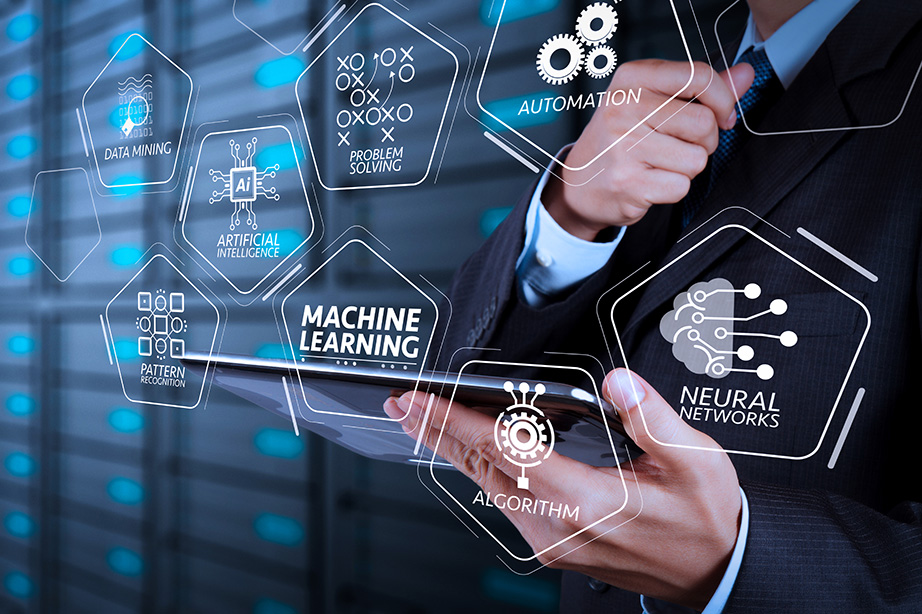Can Artificial Intelligence (AI) Change the Future of Healthcare Operations?
Artificial Intelligence (AI) will become a larger factor in all facets of life soon…
 …in everything from self-driving cars to industrial manufacturing to the way we entertain ourselves. These changes will impact every part of healthcare also, from diagnosis through treatment and even into administrative and operational functions. CMS has started two initiatives directly related to AI. The first program is the CMS Artificial Intelligence (AI) Health Outcomes Challenge, “an opportunity for innovators to demonstrate how AI tools – such as deep learning and neural networks – can be used to predict unplanned hospital and skilled nursing facility admissions and adverse events.”
…in everything from self-driving cars to industrial manufacturing to the way we entertain ourselves. These changes will impact every part of healthcare also, from diagnosis through treatment and even into administrative and operational functions. CMS has started two initiatives directly related to AI. The first program is the CMS Artificial Intelligence (AI) Health Outcomes Challenge, “an opportunity for innovators to demonstrate how AI tools – such as deep learning and neural networks – can be used to predict unplanned hospital and skilled nursing facility admissions and adverse events.”
The second CMS venture is a Request for Information (RFI) on Using Advanced Technology in Program Integrity seeking to “push the electronic health records [EHR] frontier forward even further, and encourage the rapid expansion of future EHR capabilities, CMS is also exploring the use of artificial intelligence (AI) and/or machine learning (ML) technologies. These tools hold the promise of more expeditious, seamless and accurate review of chart documentation during medical review to ensure that we are paying for what we get and getting what we pay for.” With its ability to recognize patterns, teach itself, predict and problem solve, AI will soon be ubiquitous.
Brian Yavorsky, Chief Technology Officer at CODY offered several examples of how AI might come into play:
RISK MANAGEMENT—From a compliance perspective, the ability to do interpretative tagging of incoming documents, and predictive failure analysis, flagging risks for potential actions would be a huge benefit. Pulling information from documents that CMS sends out annually, populating the interpretations of the changes, and making the content searchable is a labor-intensive process. Yavorsky suggested that AI could read paragraphs and make determinations on how to tag content. Conceivably interpretive tagging could help integrate multiple offerings toward predictive outcomes. For example, an AI system might notice, where a human might not, that required action from an HPMS memo was incorporated appropriately in one place but not in another.
BENEFIT DESIGN—In the bid resubmission process, actuarial companies like Milliman recalculate benefits. This process lends itself to AI. There may be opportunities for discovering unexpected relationships between benefits. An AI system, identifying patterns, might see the whole picture of maximizing benefits in a market. Yavorsky gave the example that a health plan realized that when they offered the Silver Sneakers benefit as a loss leader it increased use of other benefits.
DOCUMENT REVIEW—Instead of a large staff of subject matter expert reviewers from all areas of a health plan, an AI program could review all ANOCs and EOCs and identify potential errata before they occurred. This could be a tremendous cost savings for health plans, as well as minimizing risk.
As health plans continue to face the pressure of doing “more with less”, an AI-driven future can only help! At CODY, we’re already thinking about how this evolving technology will benefit our clients. How about you? Are you ready for the AI revolution?
About CODY: CODY works with more than 60 government-funded, commercial and ACA health plans across 45 states and Puerto Rico. We help health plans maximize efficiencies and strategically integrate operations by streamlining marketing communications and improving regulatory compliance. Our proprietary suite of software, CodySoft®, is specifically designed for health plans. www.codyconsulting.com.
